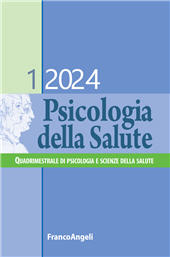2024 - Franco Angeli
Article
Digital Version
Télécharger | Copier/coller | Impression
Is Epistemic Trust relevant for Vaccine Hesitancy? : a study during the Covid-19 pandemic
46-66 p.
- Vaccine hesitancy and conspiracy beliefs are social issues of growing concern which have arisen particularly during the COVID-19 pandemic. The aim of this study was to investigate the multifaceted relationship between a hesitant attitude towards vaccination, conspiracy thinking, fear of infection, and the dimensions of epistemic trust, mistrust, and credulity. 297 Italian adult participants completed an online survey during the pan-demic time frame which included self-report questionnaires that measured the variables of interest. Group differences pertaining to prior vaccination behavior in scores of con-spiracy beliefs about vaccines and vaccine hesitancy were explored. A negative associa-tion was found between years of education and both vaccine hesitancy and conspiracy beliefs about vaccines, and a positive one with epistemic trust; higher education may protect the individual from misinformation and help in discerning between real knowledge and fake or imprecise news.
- A mediation model was developed between ep-istemic stance, vaccine conspiracy belief, vaccine hesitancy, and COVID-19-specific variables: the affective dimension (fear of contagion) and the behavioral one (number of vaccine doses). [Publisher's text].
Fait partie de
Psicologia della salute : quadrimestrale di psicologia e scienze della salute : 1, 2024-
Informations
Code DOI : 10.3280/PDS2024-001003
ISSN: 1972-5167
KEYWORDS
- esitanza vaccinale, credenze complottiste, covid-19, fiducia epistemica, sfiducia epistemica, credulità epistemica
-
Dans le même fichier
- La psicologia della salute come professione : stato, prospettive e implicazioni per la disciplina e la formazione
- University Culture : a quali-quantitative study on the emotional representations of online learning by psychology university students
- Is Epistemic Trust relevant for Vaccine Hesitancy? : a study during the Covid-19 pandemic
- Le implicazioni psicosociali e le strategie di fronteggiamento in pazienti affetti da tumore del colon-retto : una review sistematica
- Promuovere benessere e riflessività all'universitàverso il counselling di gruppo : uno studio esplorativo sull'outcome e sul processo
- La promozione della salute come scelta consapevole : il Progetto Giocamico nell'Unità di Neuroradiologia
- La misurazione della fiducia nella scienza e negli scienziati : adattamento italiano della scala in Science and Scientists
- Affrontare insieme la pandemia : un'esperienza fenomenologica-ermeneutica con un gruppo di studenti universitari


